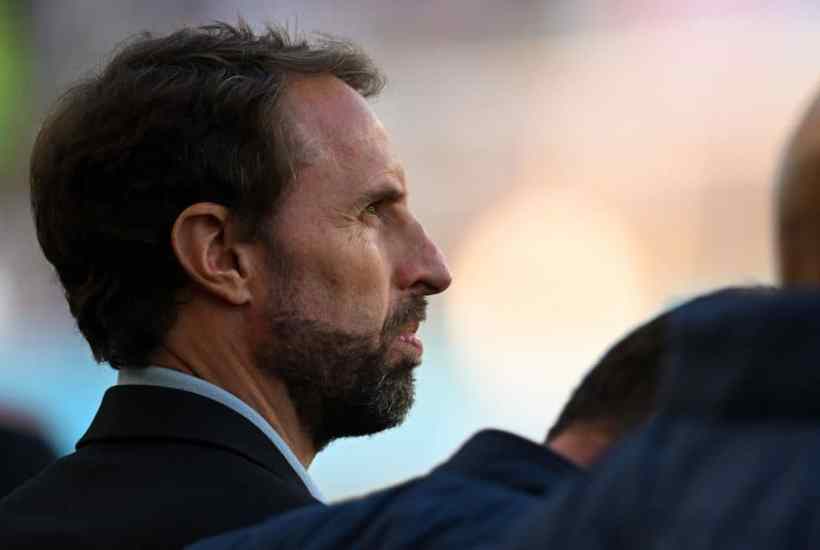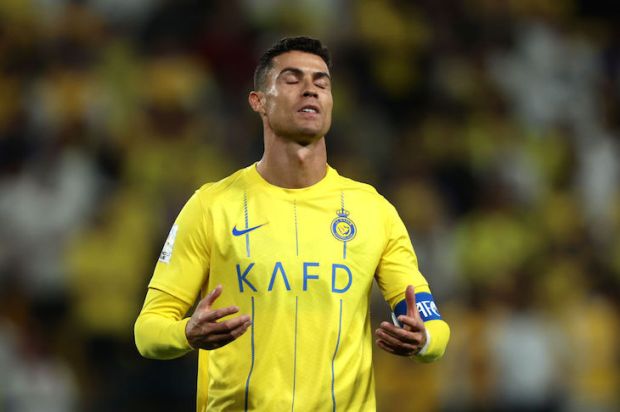‘The Hungar Shames’ screamed the Sun after England suffered a mortifying 0-4 defeat to the not so mighty Magyars last night. The game was England’s worst home defeat since 1928. England now face the humiliating prospect of relegation from Tier B of the Nations League where they may join the likes of Armenia, Montenegro, and Albania. The shambolic, shapeless, performance against determined but limited opposition (Hungary are ranked 40 in the world) came on the back of three consecutive dismal outings (one goal in six hours of play, and that a penalty). England’s second favourite status for the World Cup in Qatar now seems ludicrously optimistic.
Ordinarily there would be serious questions raised about the manager’s position after such a debacle. But, despite fans chants of ‘You don’t know what you’re doing!’, not here. Gareth Southgate is immovable, thanks to his freshly inked contract extension which will keep him in the job until 2024 (at £5 million a year). This was reward for the accumulated credit of a World Cup semi-final, Euros final and straightforward qualification for Qatar; along with, probably, his nice manners and impeccable progressive credentials (supporting his players taking the knee, for example).
But does Gareth Southgate know what he is doing? And is he worth £5 million a year? On the surface reaching the semis of a World Cup and final of the Euros are unquestionable achievements for a nation used to hitting a quarter final brick wall in major tournaments. But below the surfaces are awkward realities like the exceptionally favourable pathway at Russia 2018 opened up by a rather dubious defeat to Belgium in the first round; and the huge advantage of playing mainly at home in the Euros; and some large slices of luck en route to that final. What few question is that Southgate made a mess of the World Cup semi and the Euros final, with an inflexible game plan in both and a controversial, some would say inexplicable, selection of penalty takers in the latter.
All this highlights just how difficult it is to truly evaluate Southgate’s, or arguably, any manager’s true value and contribution. All the man in charge can really do is try to create a good atmosphere in the squad (probably a Southgate strength), pick the team, and then hope for the best. During the actual games, he can prowl around the ‘technical area’ looking pensive and concerned (Southgate), or leap around in frustration at perceived injustices (Graham Taylor). He can make substitutions that sometimes, perhaps fortuitously, appear to work, but usually make no difference; and he can bark instructions through cupped hands that, even if heard, probably confuse as much as help.
Common sense dictates that nothing much can be achieved without a decent team. Just as Lewis Hamilton won’t win an F1 race in a Williams, so Jurgen Klopp is unlikely to have much joy at Norwich. The key metric by which any manager should be judged then is how successful they are in relation to the quality of the squad available to them, and the opposition faced. By such a calculation Southgate plummets, with what most would regard as a wealth of talent at his disposal and yet a record against major sides, and recently not so major sides, that is little better than his predecessors.
Making accurate assessments of top tier international team managers like Southgate has been further complicated by Fifa and Uefa’s constant tinkering with tournament structures. In the days of 16 team World Cups and eight team Euros, qualification was a genuine achievement. But with the bloated formats of today (32 and 24) is that still the case? Hardly. In 2026, where almost one in three European teams will make it to the first 48 team tournament, it should be a mere formality for England to qualify. Expect Harry Kane to reach his 100th England goal with home and away hat-tricks against San Marino.
There was a time when football had a similarly realistic view of what the manager or coach could achieve to that which persists in rugby (can you name the coaches of the four home nations; I can’t) and cricket, where the coach (Brendon McCullum) is a long way behind the on-field captain in profile and importance. That began to change with the appointment of England’s first full time manager Walter Winterbottom in 1946.
Winterbottom’s talented England teams consistently qualified for major tournaments, where they usually disappointed. He was at the helm during some of England’s worst humiliations, including the worst of them all – the 1-0 loss to the USA in the 1950 World Cup. His teams were thrashed, home and away, by Hungary, admittedly a vastly superior Hungary, in 1953. Brian Glanville, probably the last writer on football who was around at the time, noted that ‘for all his interests in tactics, his strategies were often flawed’.
Winterbottom was by all accounts, like Southgate, a nice man, with the professorial air of the schoolteacher he once was. Unlike his occasionally abrasive successor Alf Ramsey, he caused the FA no trouble at all. He kept the job for 16 years. And won nothing. Is Southgate doomed to repeat his winless run?
Got something to add? Join the discussion and comment below.
Get 10 issues for just $10
Subscribe to The Spectator Australia today for the next 10 magazine issues, plus full online access, for just $10.




















Comments
Don't miss out
Join the conversation with other Spectator Australia readers. Subscribe to leave a comment.
SUBSCRIBEAlready a subscriber? Log in